Factories to Hospitals, ADB Assures Quality and Timely Delivery of Medical Supplies
The COVID-19 global pandemic has put a heavy burden on the healthcare systems of developing countries in the Asia and Pacific region.
The COVID-19 global pandemic has put a heavy burden on the healthcare systems of developing countries in the Asia and Pacific region.
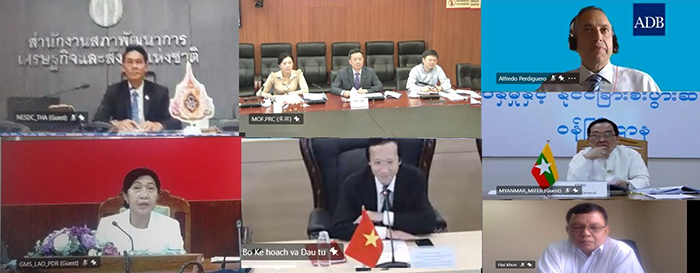
Top row, left to right: Dr. Danucha Pichayanan, Deputy Secretary General, Office of the National Economic and Social Development Council (Thailand); Mr. Liu Weihua, Deputy Director General, Department of International Economic and Financial Cooperation, Ministry of Finance (PRC); Mr. Alfredo Perdiguero, Director, SERC, ADB. Middle row: Mr. Than Aung Kyaw, Director General, FERD, Ministry of Investment and Foreign Economic Relations (Myanmar). Bottom row, left to right: Ms. Sisomboun Ounavong, Director General, Department of International Cooperation, Ministry of Planning and Investment (Lao PDR); Dr. Pham Hoang Mai, Director General, Foreign Economic Relations Department, Ministry of Planning and Investment (Viet Nam); and H.E. Mr. Ros Seilava, Secretary of State, Ministry of Economy and Finance (Cambodia)
A GMS Senior Officials Meeting (SOM) was held on 11 September 2020 via web-based conferencing to review (i) proposed key GMS strategic planning documents and knowledge products, which includes GMS COVID-19 response initiatives and the new long-term strategy for the GMS program, and (ii) preparations for upcoming GMS events—the 11th Economic Corridors Forum (ECF-11), the 24th GMS Ministerial Conference (MC-24), and the 7th GMS Summit (Summit-7).
The Asian Development Bank (ADB) and the International Organization for Migration (IOM) held a joint virtual dialogue on Labor Migration in the Greater Mekong Subregion (GMS) on 8 September 2020, with the aim of strengthening cooperation through enhanced labor migration management.
With proactive planning and investment in health and other sectors—and the support of partners like ADB—the six countries of the Greater Mekong Subregion (GMS) are meeting the challenge of the coronavirus disease (COVID-19) pandemic while ensuring faster economic recovery.
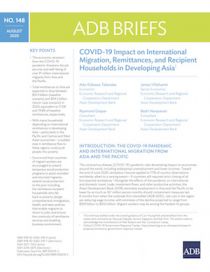
This brief assesses the impact of the coronavirus disease (COVID-19) on migrant workers, how reduced remittances will affect households and economies in Asia and the Pacific, and what policy makers can do to soften the blow.
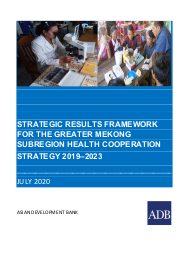
Following the approval of the GMS Health Cooperation Strategy 2019–2023 by the Health Ministers of the six Greater Mekong Sub-region (GMS) countries in December 2019, the GMS Strategic Results Framework (SRF) 2019–2023 was endorsed by the GMS countries to provide guidance to the GMS Working Group on Health Cooperation, in collaboration with GMS countries, in monitoring and evaluating the Strategy’s effectiveness against its intended strategic outcomes by 2023.
In the popular imagination, the coronavirus disease (COVID-19) pandemic has been a boon for the natural world. With more than a third of the global population under some level of lockdown, we’ve delighted to see skies burst back into blueness and wild animals venturing into urban neighborhoods. It’s been easy to convince ourselves that wildlife and the environment have flourished. The truth, however, isn’t so reassuring. The pandemic has created an increase in poaching, animal trafficking, illegal fishing and other environmental crimes.
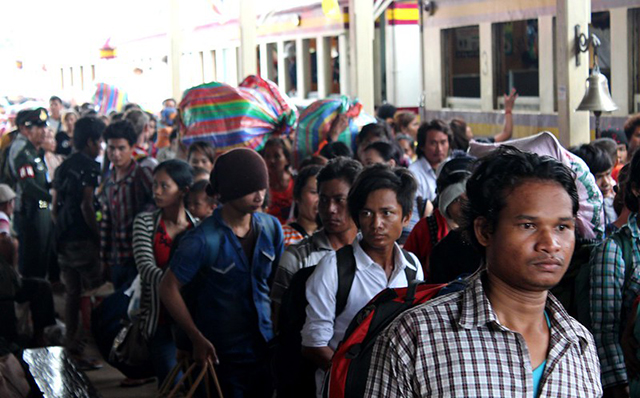
Cambodian migrants arriving by train at Anranya Prathet, Thailand. Photo by Joe Lowry via IOM - UN Migration (CC BY-NC-ND 2.0) © IOM 2014
When it comes to the coronavirus disease (COVID-19) outbreak no one is safe until everyone is safe. This was one of the key points emphasized by Dr.
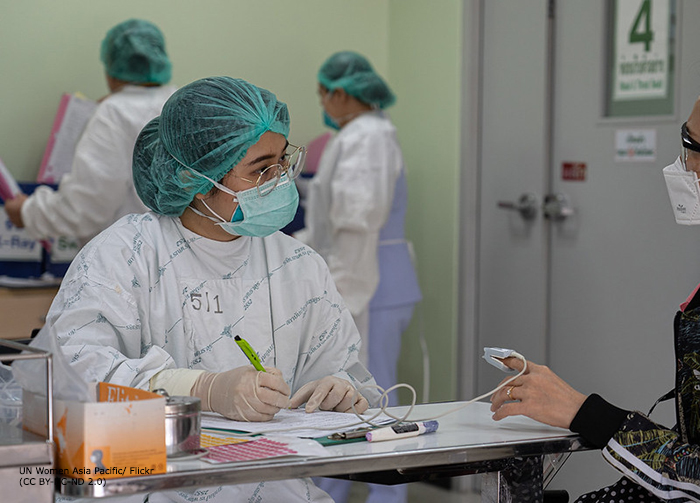
A frontline healthworker at the Thailand Bamrasnaradura Infectious Disease Institute, Ministry of Public Health. Photo by UN Women Asia and the Pacific.
Cambodia, the Lao People’s Democratic Republic (PDR), Myanmar and Viet Nam, CLMV countries in the Greater Mekong Subregion (GMS), have experienced a relatively smaller number of reported cases and fatalities of the coronavirus disease (COVID-19). As of 22 June, Cambodia reported 129 confirmed cases, Lao PDR reported 19 confirmed cases, and Viet Nam reported 349 confirmed cases. All three countries recorded 0 deaths from COVID-19. In Myanmar, while there have been 6 deaths, only 286 confirmed cases were reported.
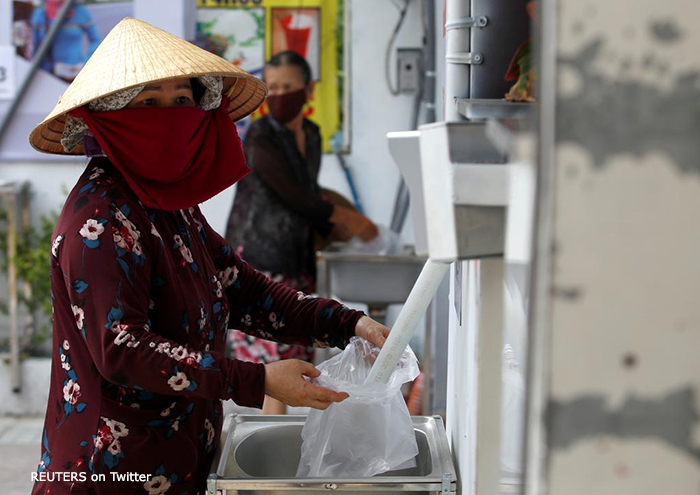
A 24/7 automatic dispensing machine provides free rice for people out of work following the lockdown. This was spearheaded by a Vietnamese entrepreneur in Ho Chi Minh City. Photo by Reuters on Twitter.
An initiative by the Mekong Tourism Coordinating Office (MTCO), Destination Mekong, and the Mekong Institute (MI) taps individuals' help in crowdsourcing newly-spotted innovations on how the coronavirus disease (COVID-19) is being managed and/or overcome in the Greater Mekong Subregion (GMS).